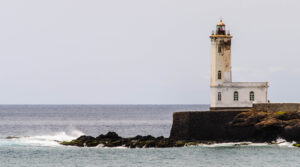Translator Jethro Soutar speaks to managing editor Emily Everett about three pieces he translated from Portuguese for Issue 20 of The Common magazine. These pieces appear in a special portfolio of writing from and about the Lusosphere—Portugal’s colonial and linguistic diaspora around the globe. In this conversation, Soutar talks about the complexities of translating poetry and prose: capturing not just the meaning of a piece but the feeling and atmosphere of it, and the culture behind the scenes. He also explains a little of the colonial and racial history of Portugal, Cape Verde, and Mozambique, and how those events echo today through the literature and language of modern Lusophone countries.








